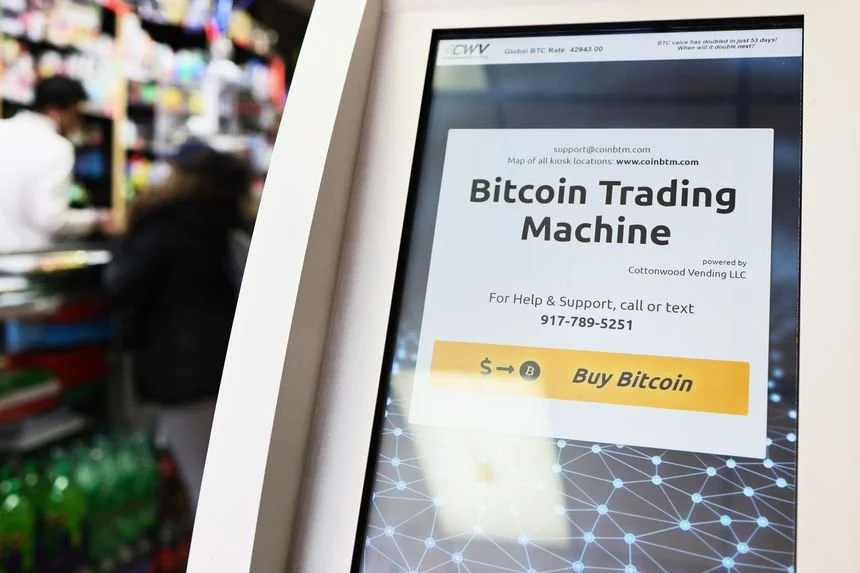what to know about crypto fees
THIS ARTICLE IS TAKEN FROM WSJ
Crypto and Its Many Fees:
What to Know About the Hidden Costs of Digital Currency
By
Dec. 18, 2021 6:00 am ET
Cryptocurrencies are designed to trade across online networks, without the need for banks or government support. Many new investors are surprised, however, to learn there are costs to using digital cash, including unexpected fees. Below are some frequently asked questions.
What are crypto fees?
Crypto fees are essentially processing fees built into the networks that maintain bitcoin and other cryptocurrencies. In addition, third-party services like exchanges, trading apps and ATMs charge their own fees.
Why am I paying fees for what is supposed to be the equivalent of cash?
The network fees are incentives for the people operating the computers that keep the network alive. The services fees are the way those groups make money.
Crypto networks are run on a voluntary basis. For most of them, anybody can download the software and operate as a node on the network. They don’t get specifically paid to do this, so some networks have built-in incentives. One is “mining” rewards—newly minted bitcoin or ether, for example. The other is fees. (On the Ethereum network, these fees are called gas.)
How much are the fees?
It varies. For the digital asset XRP, the average fees are a fraction of a penny. For cryptocurrency dogecoin, the average fees have ranged from 2 cents to about $2.50.
However, on the most heavily trafficked networks—Bitcoin and Ethereum—the way fees are designed means they can be quite expensive. On the Bitcoin network, the average daily transaction fee this year has been as low as $1.78 and as high as $62, according to bitinfocharts. On Ethereum, the average fee has been as low as $1.59 and as high as $70.
Because of that range, whether or not the fees are onerous depends mostly on the size of your transaction. If you are sending $1 million to a broker, for instance, paying $60 to have that transaction settled in about 10 minutes is negligible (paying $1.80 is even better). If you are buying a cup of coffee at Starbucks, paying $1.80 in fees for a $3 coffee is excessive. Paying $60 is insane.
Why is there such a big spread?
The fees vary based on network traffic. The more transactions on the network, the higher the fees. It isn’t dissimilar to a highway that charges more expensive tolls during rush hour.
Bitcoin’s highest average daily fees, for example, were recorded in April when the market was exploding, trading was heavy and the price was setting a new high.
A larger reason for this is that the Bitcoin and Ethereum networks have capacity constraints that create bottlenecks during heavy trading. Both networks are in the midst of software upgrades that should lower these fees, eventually, though they won’t go away. For users, the easiest way around those bottlenecks is to offer higher fees as an incentive for quicker processing or to try to time your activity during slower periods.
Can I avoid paying high fees?
Yes and no. On Ethereum, there is a base fee. Beyond that, users can set a “priority fee,” sort of like a tip. You don’t have to offer a tip, but doing so acts as an incentive for the miners to process your transaction sooner.
The same concept applies on the Bitcoin network. If you customize your fee, you could offer a minimal fee. However, miners are looking for the best combination of transaction size (smaller transactions are easier to process) and fees. If you don’t give the miner an incentive to process your transaction, they may simply choose not to process your transaction. It will sit there, waiting for a miner who decides for whatever reason to pick it up. If the fee is low enough, it may never, in fact, get processed.
Are those the only fees?
No. Those are just the fees for the network. Third-party services, exchanges like Coinbase or bitcoin ATMs, for example, also charge fees for their services.
On exchanges like Gemini and Coinbase, the fees can total 3.99% to 4.5%, respectively, according to NerdWallet. Bitcoin ATM fees can range from 7% to 20%, according to ATM operator Coinme.
Do trading apps charge fees, too?
It depends. Robinhood doesn’t, but it also offers a limited number of cryptos for trading. Block Inc.’s Cash App may charge a fee based on the difference between your purchase price and the spot market prices. You may also pay a transaction fee for withdrawals if you opt for an expedited deposit speed. Beginning in 2022, PayPal will charge a fee between 50 cents and 2.3%, depending on the size of the transaction.


